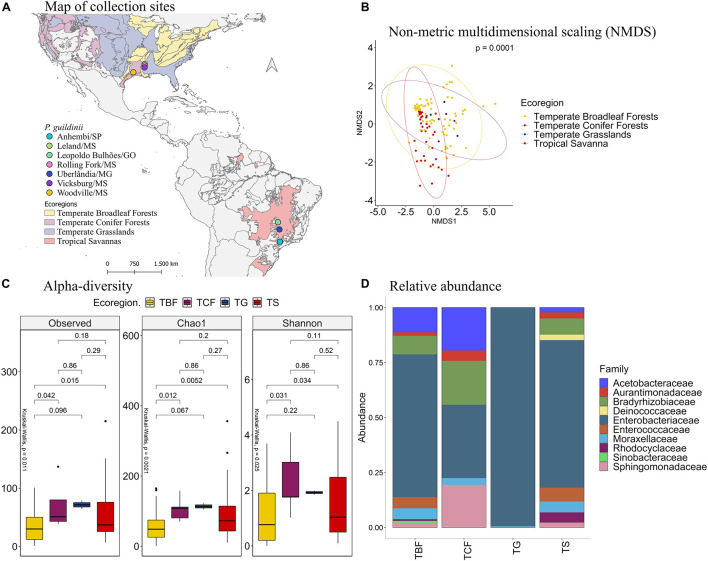FIGURE 3.
(A) Mapping of collection sites of P. guildinii, classified by ecoregion in Brazil and the United States. (B) NMDS of Bray-Curtis similarity matrix among 117 samples from the intestinal microbiome of P. guildinii, for the different ecoregions from Brazil and United States. The ellipses are showing clustering between ecoregions. Permutational multivariate analysis of variance (PERMANOVA) is indicated in the upper right. (C) Alpha diversity levels based on Observed OTU, Chao1 index and Shannon index for the different ecoregion. The non-parametric test (Kruskal–Wallis) is indicated in the upper left of each graph. Pairwise comparison (Wilcoxon) is indicated between Ecoregions. (D) Analysis of the ten most abundant bacteria families in the intestinal microbiome of P. guildinii collected in Brazil and the United States, classified by ecoregion.

